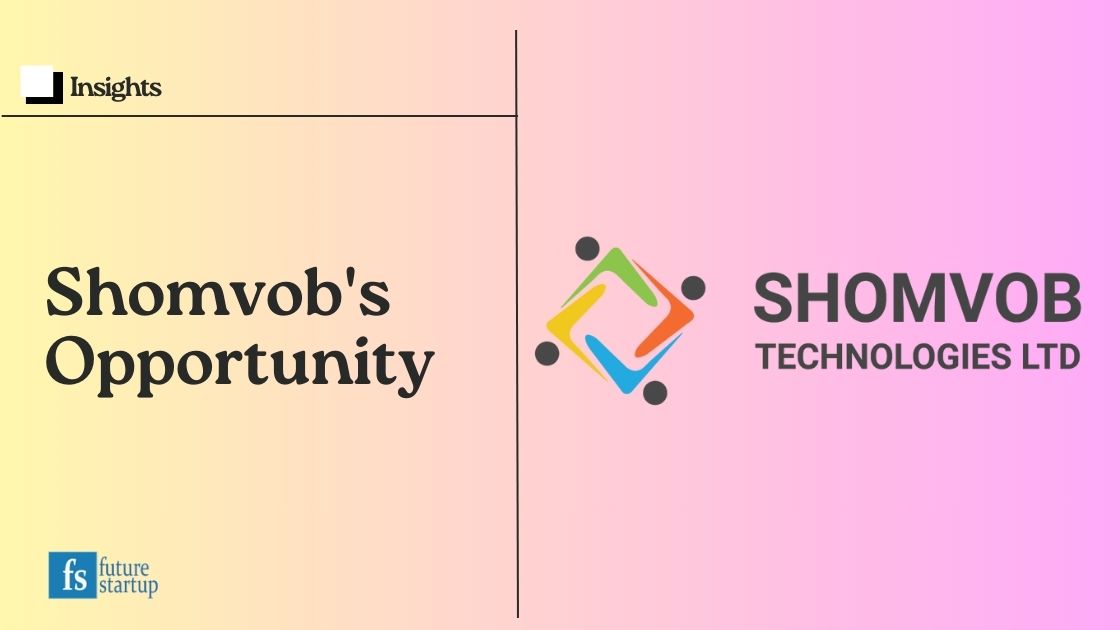
Shomvob, the Dhaka-based HR-tech and employment platform focused on blue and silver-collar workforce, announced that it has raised a $1 million pre-seed financing round led by Singapore-based early-stage venture capital firm Cocoon Capital. The company said it has also received a grant from Bill & Melinda Gates Foundation.
This influx of capital presents Shomvob with an opportunity to change the traditional hiring paradigm in the blue-collar hiring market in Bangladesh and potentially other emerging markets. From e27 (emphasis added):
“Shomvob, a B2B job-tech and HR-tech platform in Bangladesh has raised US$1 million in a pre-seed financing round led by Singapore-based Cocoon Capital. The Dhaka-headquartered startup also received a grant from the Bill & Melinda Gates Foundation.
The funds will support the development of a comprehensive Human Resources Information System (HRIS) that encompasses everything from recruitment to payroll management, streamlining HR processes, and improving access to job opportunities, particularly for historically underserved groups.”
The employment conundrum in Bangladesh is a paradoxical one. According to some estimates, 86% of Bangladesh’s labor force is employed in the informal sector. Per Shombov, over 650,000 corporations and SMEs grapple with critical hiring issues for their frontline workforce, resulting in a staggering 30% productivity loss. Concurrently, a growing number of Bangladeshis struggle to find employment opportunities that align with their expectations. In the informal sector, this leads to unscrupulous intermediaries.
While Bdjobs, Bangladesh’s largest jobs platform, has recently entered the market with a dedicated product offering, there is no dedicated job marketplace for this segment. This presents an opportunity for a player in the blue and silver color job market.
Founded in 2022 by Rifad Hossain, Naqib Muhammad Faiyaz, and Hasibur Rahman, Shomvob says it has built an innovative approach that leverages advanced algorithms and an Application Tracking System (ATS) to match job seekers with suitable opportunities while providing real-time updates on application progress.
By offering job seekers a professional digital identity and a streamlined application process, Shomvob aims to disrupt traditional hiring models. For companies, the platform simplifies the hiring process, reducing time and costs while ensuring compliance.
In simple terms, Shomvob is a two-sided marketplace serving job seekers and businesses. It aims to solve multiple consequential problems for each side of its platform.
Jobs as a category is critical and interesting for several reasons. For employers, hiring the right people is of paramount importance. In an ideal world, companies should be happy to invest in ensuring that they get to hire the right people. For job seekers, getting a job and then getting the right job are critical goals. To improve one’s odds of getting the best option, one should be happy to invest.
There are natural incentives for both parties. Part of Shomvob’s work is in aligning these incentives and building on top of it.
One of the important ambitions for Shomvob is to fix the broken job search problem in this market. Although it looks like a problem for job seekers from the outside, it is not. It is an even bigger problem for businesses. Because job seekers in the Shomvob universe connect everything else. That’s the supply side if you consider Shomvob as an aggregator.
Shomvob’s supply exerts great influence on its demand side, which is companies, allowing Shomvob to have greater control over demand thus controlling supply. After a certain threshold, more job seekers means Shomvob will be able to attract more businesses and vice versa.
That’s why Shomvob wants to do a good job at solving problems for job seekers - giving them a seamless and reliable experience and helping them build digital profiles and all. It also opens other opportunities for Shomvob.
We are seeing some movement in these directions on Shomvob’s part. In just about two years, Shomvob claims it has signed up over 600,000 job seekers, and 1,300 companies and facilitated 12,000 placements across logistics, retail, healthcare, and more.
This traction is crucial for Shomvom to realize network potential. We're still early, but Shomvob is clearing the initial hurdle.
Shomvob has further opportunities to build out a "service layer" maximizing engagement:
Each addition makes the platform stickier while commoditizing the underlying vertical offerings of staffing/hiring.
Shomvon has made some of these as its stated objectives. The company says the fresh injection of capital will allow it to invest in developing a comprehensive Human Resources Information System (HRIS), streamlining HR processes from recruitment to payroll management. In the long term, Shomvob says it aims to integrate embedded financial services for its clients and expand into the global mobility market to facilitate the movement of human resources. These are classic aggregator moves—building more offerings on top of one offering.
According to various reports, the recruitment and staffing market in Bangladesh is valued at $17 billion and the broader Asian market size of $250 billion is growing at an annual rate of 8%. Shomvob sees an opportunity to build a strong position in this market across emerging and developing markets grappling with similar employment challenges.
Hiring is among the highest-leverage activities one can productize. It impacts company productivity, worker empowerment and mobility, and economic inclusion. Owning the horizontal workforce deployment layer confers immense influence.
However, it is worth noting that the market Shomvob is working on is a tough nut to crack. Previously, companies like Kormo tried to solve this market and couldn’t pull it off. Technology adoption among both job seekers and many employers in the segment remains a challenge. The complexity of the problem makes a comprehensive solution at scale expensive and sluggish. Therein lies the uncertainty, opportunity, and obligation for Shomvob.
